July 11, 2018
Avenue HQ is named as Coworking Space of the Year by IPSE
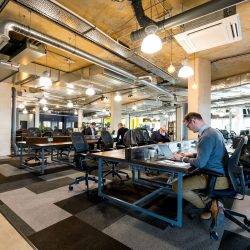 Liverpool’s Avenue HQ has been crowned ‘National Co-Working Space of the Year’ by The Association of Independent Professionals and the Self-Employed (IPSE). The award claims to ‘recognise and celebrate the important role coworking spaces play in creating a nurturing, inclusive and stimulating environment for the UK’s 4.8 million-strong self-employed workforce’. The coworking industry is booming globally as companies of all sizes recognise the importance of working environment on employee and business performance. Pioneered by start-ups, entrepreneurs and freelancers, a growing number of companies, large and small, are incorporating the concept and rapidly reaping the benefits.
Liverpool’s Avenue HQ has been crowned ‘National Co-Working Space of the Year’ by The Association of Independent Professionals and the Self-Employed (IPSE). The award claims to ‘recognise and celebrate the important role coworking spaces play in creating a nurturing, inclusive and stimulating environment for the UK’s 4.8 million-strong self-employed workforce’. The coworking industry is booming globally as companies of all sizes recognise the importance of working environment on employee and business performance. Pioneered by start-ups, entrepreneurs and freelancers, a growing number of companies, large and small, are incorporating the concept and rapidly reaping the benefits.







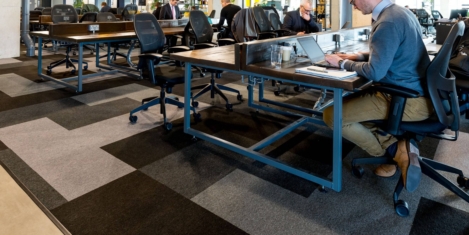
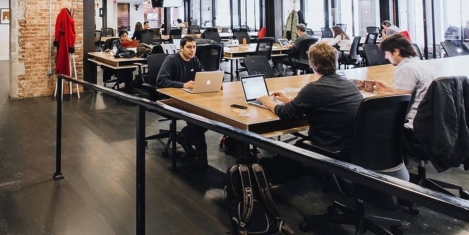
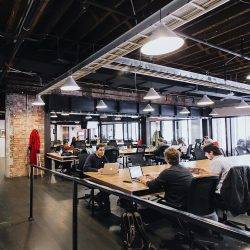
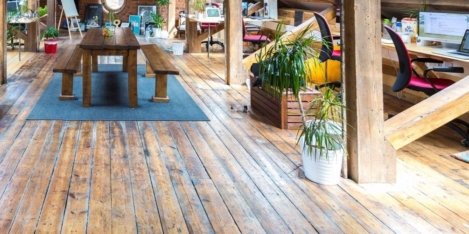


 UK office workers spend an alarmingly limited amount of time outdoors each day, claims new research from Ambius, which found that almost 40 percent spend a maximum of just 15 minutes outside, excluding their commute to work, and an additional 22 percent spend a maximum of 30 minutes outside. This is even less than prisoners, who require ‘at least one hour of suitable exercise in the open air daily’, according to UN guidelines. On average, the British workers surveyed spend more time per day at their desk or workstation (6.8 hours) than they do in bed (6.4 hours), relaxing at home (3.5 hours) or outdoors (37 mins). A lack of fresh air (57 percent), insufficient natural light (49 percent), and an absence of indoor plants (36 percent) were the biggest source of frustration for employees. Introducing indoor plants (49 percent), nicer artwork (50 percent), and a more interesting colour scheme (54 percent), topped the list of employees’ requests to improve their workplace.
UK office workers spend an alarmingly limited amount of time outdoors each day, claims new research from Ambius, which found that almost 40 percent spend a maximum of just 15 minutes outside, excluding their commute to work, and an additional 22 percent spend a maximum of 30 minutes outside. This is even less than prisoners, who require ‘at least one hour of suitable exercise in the open air daily’, according to UN guidelines. On average, the British workers surveyed spend more time per day at their desk or workstation (6.8 hours) than they do in bed (6.4 hours), relaxing at home (3.5 hours) or outdoors (37 mins). A lack of fresh air (57 percent), insufficient natural light (49 percent), and an absence of indoor plants (36 percent) were the biggest source of frustration for employees. Introducing indoor plants (49 percent), nicer artwork (50 percent), and a more interesting colour scheme (54 percent), topped the list of employees’ requests to improve their workplace.










 In a workplace dominated by insecurity, gig work and intelligent machines we need to improve our understanding of their potential impact on health, safety and wellbeing claims a new report.
In a workplace dominated by insecurity, gig work and intelligent machines we need to improve our understanding of their potential impact on health, safety and wellbeing claims a new report. 








June 13, 2018
US companies are waking up to the benefits of caring for employee mental health
by Colleen O'Day • Comment, Wellbeing
(more…)